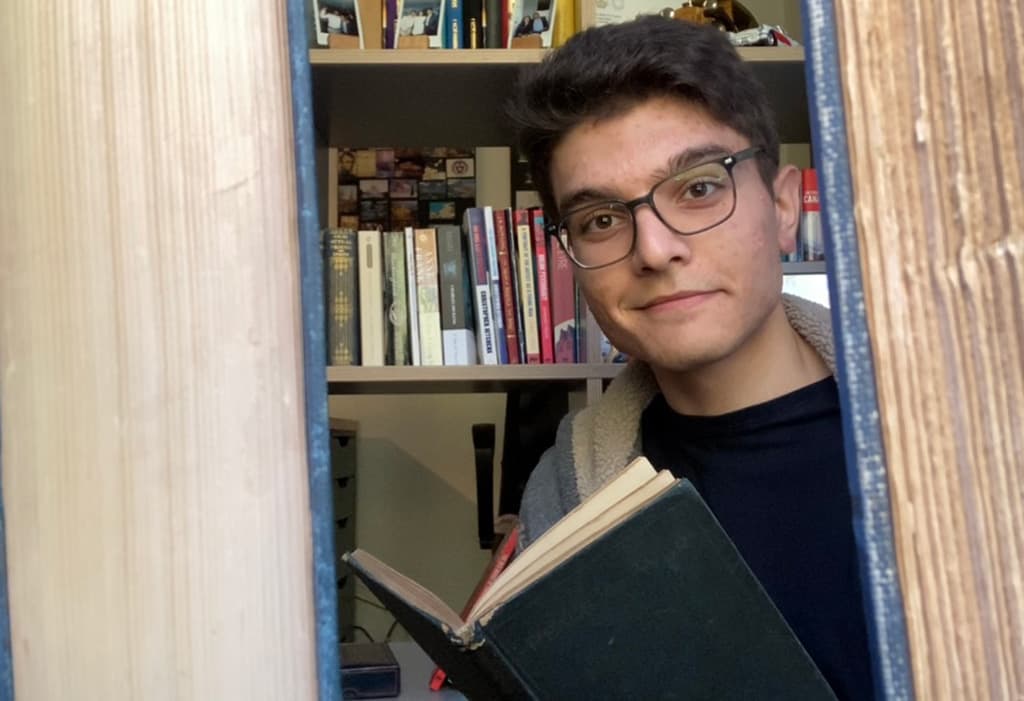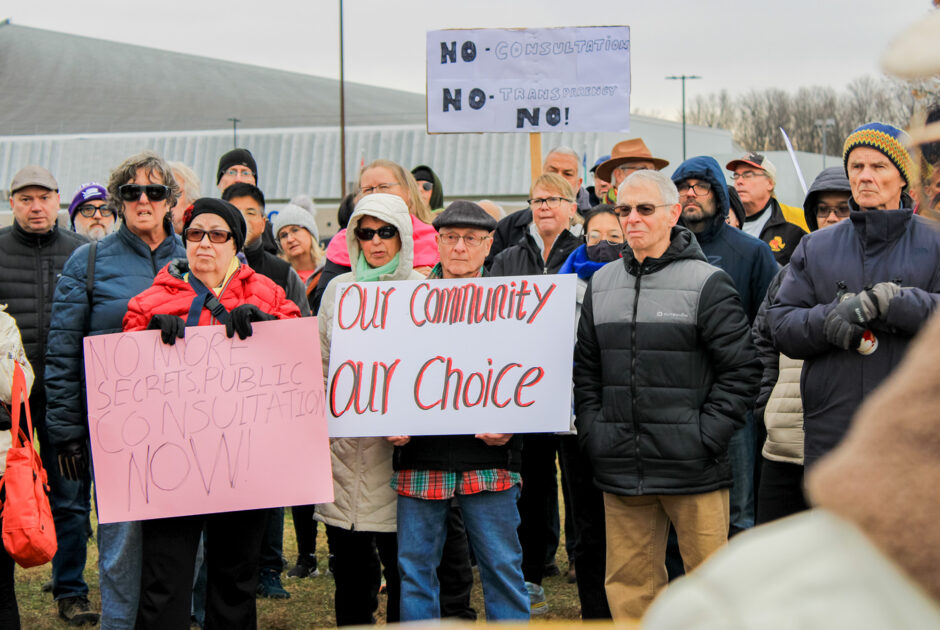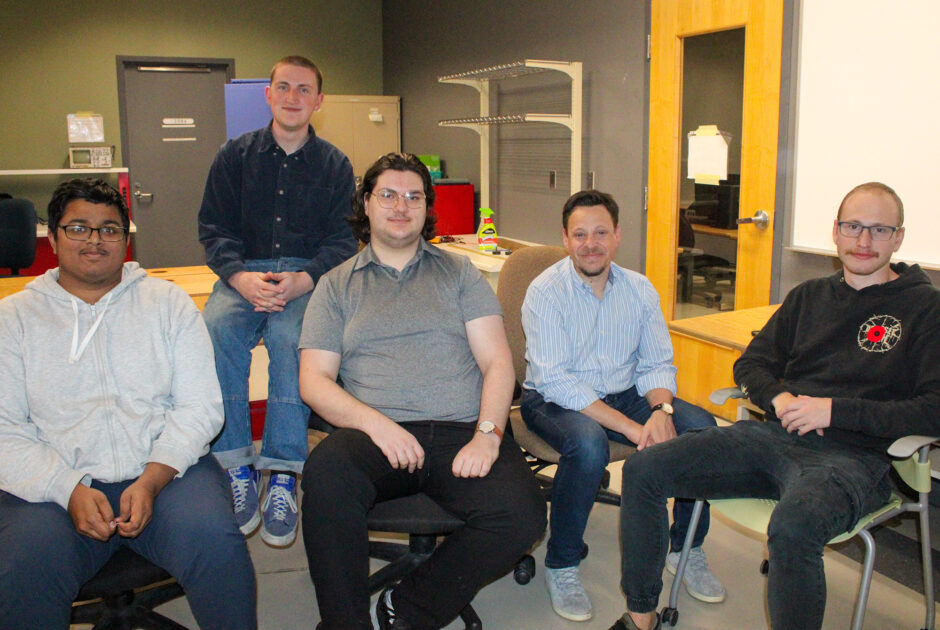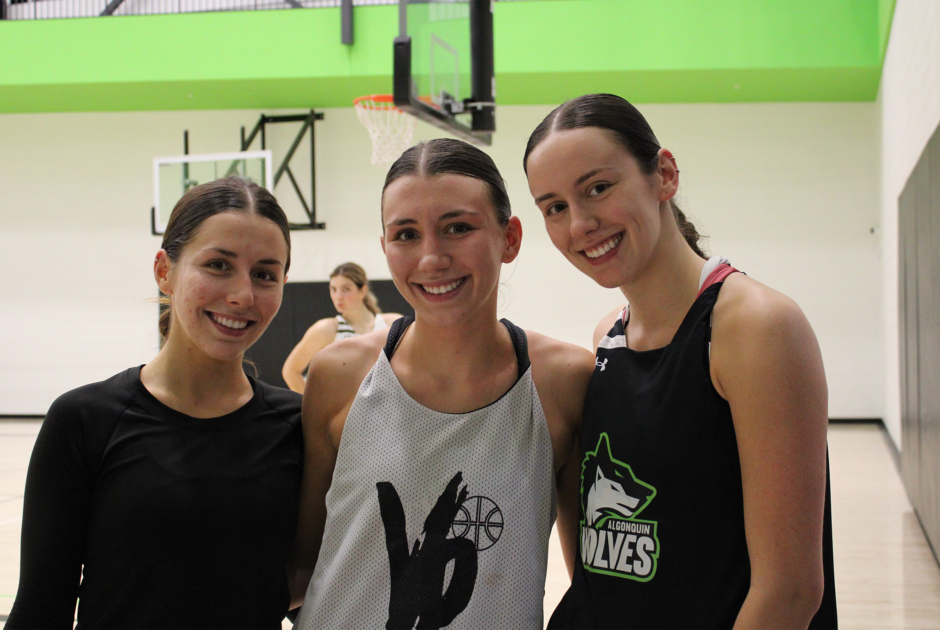First Person: What it’s like to be a ‘nobody’ when war happens

On Feb. 24, 2022, my dad woke me up in our apartment on the 22nd floor. It was a cold murky Saint Petersburg morning. In this northern Russian city, every morning is cold and murky. “The war has begun,” Dad said. He was both tired and scared. But most importantly, he was disappointed.
For a whole month prior to the 24th, we had been discussing the absolute insanity of all those “alarmists” who were saying that Russia’s invasion of Ukraine was inevitable.
We laughed at them. We laughed at them while eating breakfast, while walking in the park or while doing the dishes.
Instead, we led our lives as any “normal” people would have at that time: we worried about transit, groceries, COVID masks and the damn icicles that kept falling from Saint Petersburg roofs.
On the 24th everything fell apart. The “insanes” were right. They had been right to be alarmed. We were wrong. History had killed the life that we had the right to lead.
Today, “normal” people – the kind we’d been before the morning of the 24th – can complain about the bus that arrived late. They can talk about the government that wasted their money or the Internet that is too slow for a Netflix movie. Overall, they have the right to whine.
Those of us who woke up on the morning of the 24th in Russia don’t have that privilege.
We woke up in a chapter of a history book. We joined those in Afghanistan, Iraq and Nagorno-Karabakh whose chapters were well underway. On Oct. 7, 2023 we were joined by Israelis and Palestinians.
So, from now on, every second of our every day must be spent thanking the world, God and, again, history for the fact that we are not dead.
On that morning, when my dad was standing at the door of my room, I heard a siren.
It was not a real siren. At least not to us. It was coming out of TV. The TV that was about to work for 48 hours straight without a break. We were watching Euronews. They were broadcasting from Independence Square in Kyiv. Nothing was happening, there was just a siren.
Occasionally, they would rerun the speech of Russia’s commander-in-chief. Every time this balding old man appeared on the screen, declaring the launch of the “special military operation,” such obscenities would come to my mind that I had never thought I was capable of.
Every Russian-speaking person, especially those of us who were in Russia at the time, has a very similar “24th of February story.” And we all tell it the same way our grandparents used to talk about the day in 1941 when a deep powerful voice of Yuri Levitan declared on the radio, “Moscow’s speaking. The Great Patriotic War of the Soviet people against the Nazi invaders began.”
The only difference is, our grandparents were “the people,” while we are…
Who are we exactly?
Janet Silver has worked as a reporter for several decades. She is one of those people who had the chance to witness the most important historic events of the past and present century. Events that are already “history-book material.”
She witnessed the fall of the Berlin Wall and the military coup in the former Soviet Union. From Toronto, she covered Tiananmen Square.
What would be an “eye-opening” experience for someone who had witnessed so many of those?
The 9/11 attacks were just like that. “Eye-opening.”
Silver was an ABC Australia reporter in Washington, D.C. She remembers the next morning after the attacks.
“Going into work, riding the subway and (there were) literally people sitting there with Qur’ans and Bibles, because they were thinking, ‘Is this The Day?’”
As a journalist, Silver worked in the National Press Building. And she would be evacuated many times, because of endless letter bombs that were delivered.
But really, who cares? Who cares about a journalist, some people in the subway or a young dude on a murky morning who are scared? History is not about the ones that are scared, it’s about the thousands who are dead. The scared must be thankful that they are living.
And we are.
But sometimes history will chew you up and spit you out and you must stand up with a cheery smile and say, “Thank you.”
We should be thankful that it wasn’t our house that was destroyed by a bomb. We should be thankful that we weren’t the ones tortured to death just because someone wanted to torture us to death. We should be thankful that we are witnessing history, unlike others who are no longer alive to recognize their place in it.
After Feb. 24, I thought Russia was united in its hatred towards this “special military operation.” My social media feed was filled with black squares with white hashtags #NoWar.
But it turned out that the people in my bubble, those terrified “non-insanes” were lonely voices in a silent crowd.
For instance, my high school physics teacher, Sergey Antonov, was one of the very few teachers in our school who dared to speak up. “No war!” he wrote in his Instagram under a photo with his wife in Kyiv. “I hate everybody responsible for this.”
Later he had to delete this post. He was still fired and had to emigrate from Russia. Otherwise, he might have been taken to the frontline. To kill or to be killed.
Some of his colleagues emigrated too. Those were the best teachers our school had.
Many of my high school classmates (the most talented ones), who would have otherwise made outstanding careers in Russia, also emigrated. Within months after the 24th, Russia lost thousands of future IT experts, teachers, economists, linguists and many others.
Today, those who stayed, those who are silently waiting for all of this to end, are walking the streets of cities unfriendly to them. Those cities are covered with glorifications of violence: posters, street art and stickers that praise the criminals and slander the victims. They live in the country, where murder is preached from the church pulpits. They hear it from the country they loved, that did not love them back.
But, again, we are all lucky.
My gym teacher, a former military person, was taken to fight in Ukraine. He died near Mariupol on Oct. 5, 2022. His name was Vadim Yurievich Sedov.
Our siren on the 24th wasn’t real, but we saw its consequences.
The “special military operation” has now been going on for almost two years. Within the first month, our Euronews channel in Saint Petersburg was blocked “for fakes about the Russian military.”
Today, I wake up in a two-storey townhouse in east-end Ottawa. Mornings can still be cold and murky.
So again, who am I? Who are we? We are those, whose grandparents fought against oppression and tyranny. Those who do not accept oppression and tyranny. Those who are alive and relatively safe.
We are nobody. Not victims, nor aggressors. We are leftovers. We are those whom books will deem insignificant.








